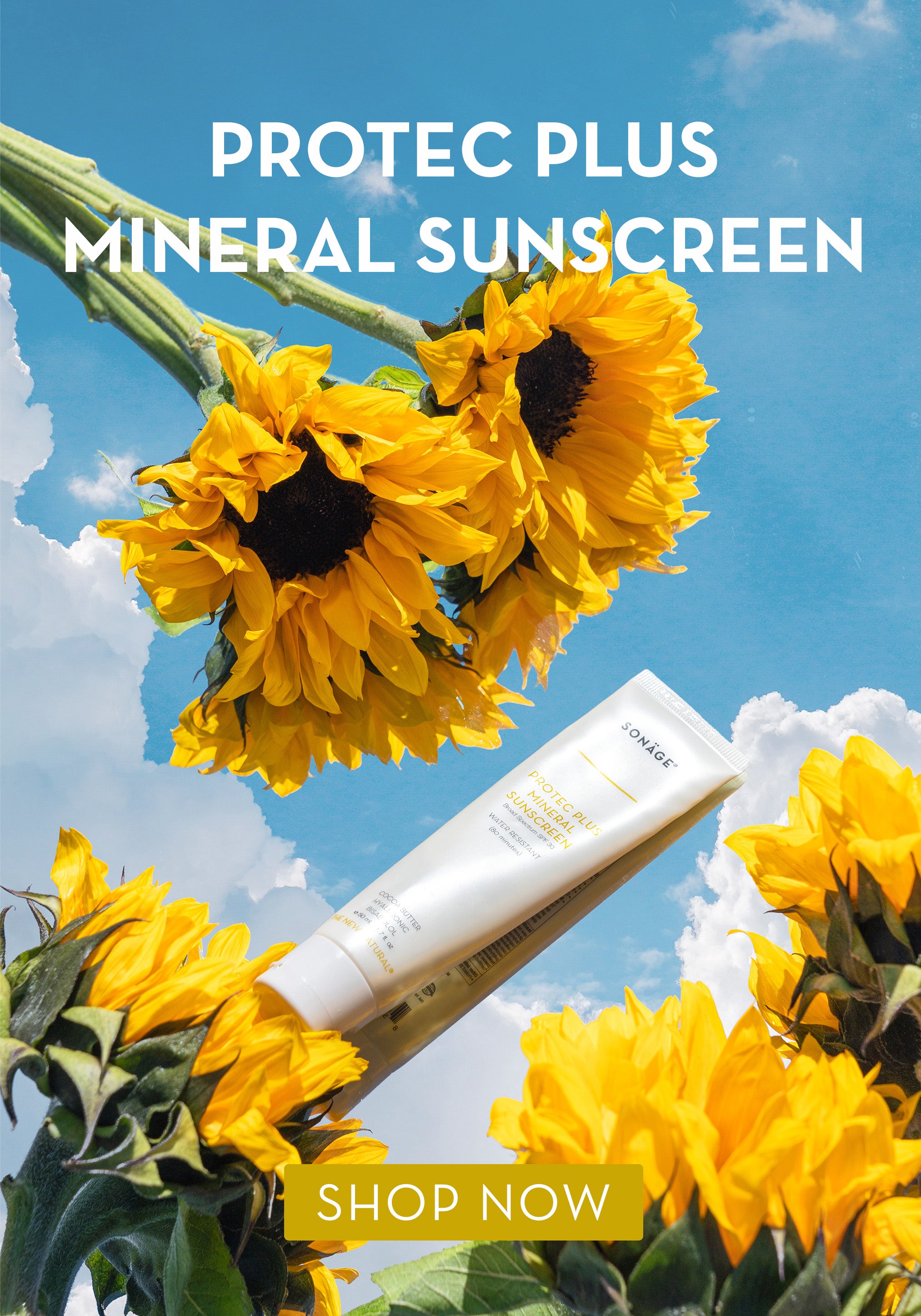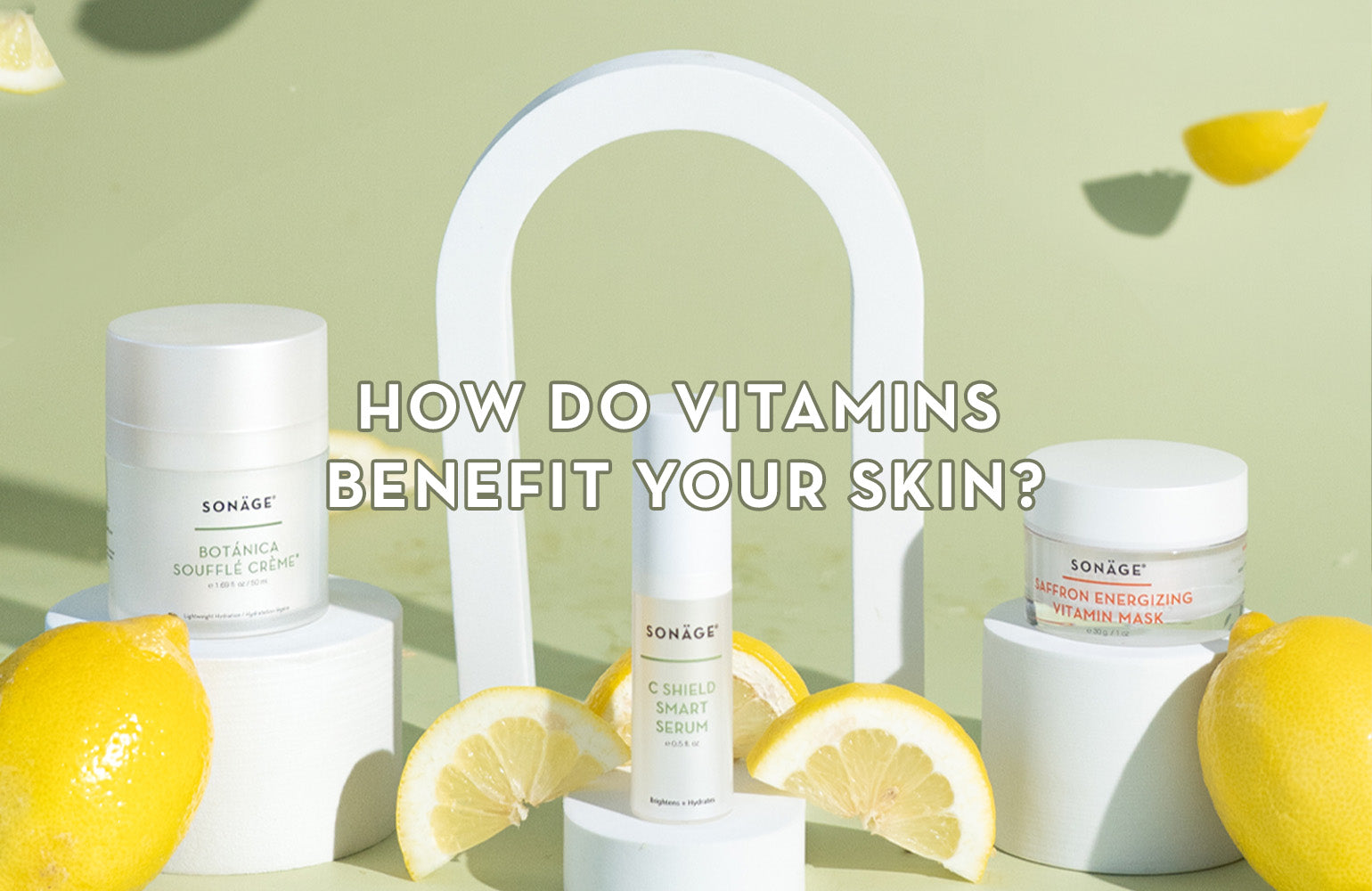
AT A GLANCE
-
WHAT IT IS
Non-Nano Zinc oxide is a non-harmful ingredient that protects your skin from damaging UV Rays. -
WHAT IT DOES
Zinc oxide is an active ingredient found in mineral sunscreen - which creates a physical barrier to help protect your skin from the sun. Choosing a mineral sunscreen with zinc oxide is safer for the environment and your skin. -
HOLY GRAIL PRODUCT
Protec Plus Mineral Sunscreen
Zinc Oxide Mineral Sunscreen For Face That Blends With Every Skin Tone
Spring = Sun Exposure = Sunscreen. As long as it’s SPF 30, right? We wish it were that simple! Looking for a good face sunscreen is often stressful and complicated, especially when there are countless ones to choose from.They may get the job done as far as shielding your skin from harmful UV rays, but at what cost. Countless sunscreens contain harmful/harsh ingredients that are absorbed by your skin.
The FDA and EWG state that the only two active sunscreens that are safe and adequate are Zinc Oxide and Titanium Dioxide.
What is Zinc Oxide?
Zinc Oxide is a mineral that occurs naturally from the element zincite, which is scarce and not available to everyday consumers. Though there are specific processes designed to produce Zinc Oxide. This unique mineral compound must be mixed with a carrier agent as it is not water-soluble, and when used cosmetically it must be combined with other mineral ingredients.
Why Zinc Oxide As A Sunscreen?
Natural sunscreens, often referred to as mineral or physical sun, are formulated with Titanium Dioxide or Zinc Oxide, forming a protective layer on the skin. This barrier is meant to scatter and reflect broad-spectrum UVA/UVB rays instead of getting absorbed. Due to its high safety level, Zinc Oxide is used to treat a wide range of skin conditions for kids. Zinc Oxide wastes no time and gets right to work upon application. Zinc Oxide forms a protective layer, blocking out damaging UV rays. On a side note, zinc oxide is also reef friendly – protect the Earth!
mineral vs chemical sunscreen, difference between mineral and chemical sunscreen

Mineral Sunscreen vs Chemical Sunscreen: What's the Difference?
Chemical sunscreens, unlike physical, are water-soluble meaning they are absorbed into the skin and bloodstream. They are formulated from chemicals that work by converting UV rays into heat that then absolves itself from the skin. These chemicals are considered toxic, linked to health concerns like allergies, cell damage and even disrupt hormones which leads to infertility, according to EWG. Because they are absorbed, chemical SPF needs 20 minutes to take full effect.

Mineral sunscreens aren't water soluble, unlike their counterpart. They effectively shield a variety of the sun’s harmful rays, including UVA. Currently Titanium Dioxide and Zinc Oxide are the only mineral ingredients that are considered safe to use for sun protection. They reflect UVA/UVB rays, blocking your skin from environmental stressors, and work immediately when applied. Mineral sunscreens are safe and gentle on sensitive skin, and less likely to clog pores!

What Is The Best Sunscreen For My Face?
Zinc Oxide is very gentle and often used in baby products due to its skin safety levels and anti-irritation properties. Though these are both safe options for a mineral sunscreen, zinc oxide offers protection from UVA rays, while titanium is less effective in this field.. Fortunately, our Protec Plus Mineral Sunscreen is formulated with zinc oxide for optimal sun protection. We’ve said it before and we will say it again and again, but sunscreen should be applied every day, no exceptions.Rain or shine, even on the cloudiest of days, don’t forget to use SPF this season!
Read More:
- The Secret To Sun Protection: Why Mineral Sunscreen Is The Best Choice
- What Is Sun Damaged Skin And How To Prevent It
zinc oxide sunscreen for face, zinc oxide sunscreen, is zinc oxide safe, zinc oxide for acne, zinc oxide for skin



